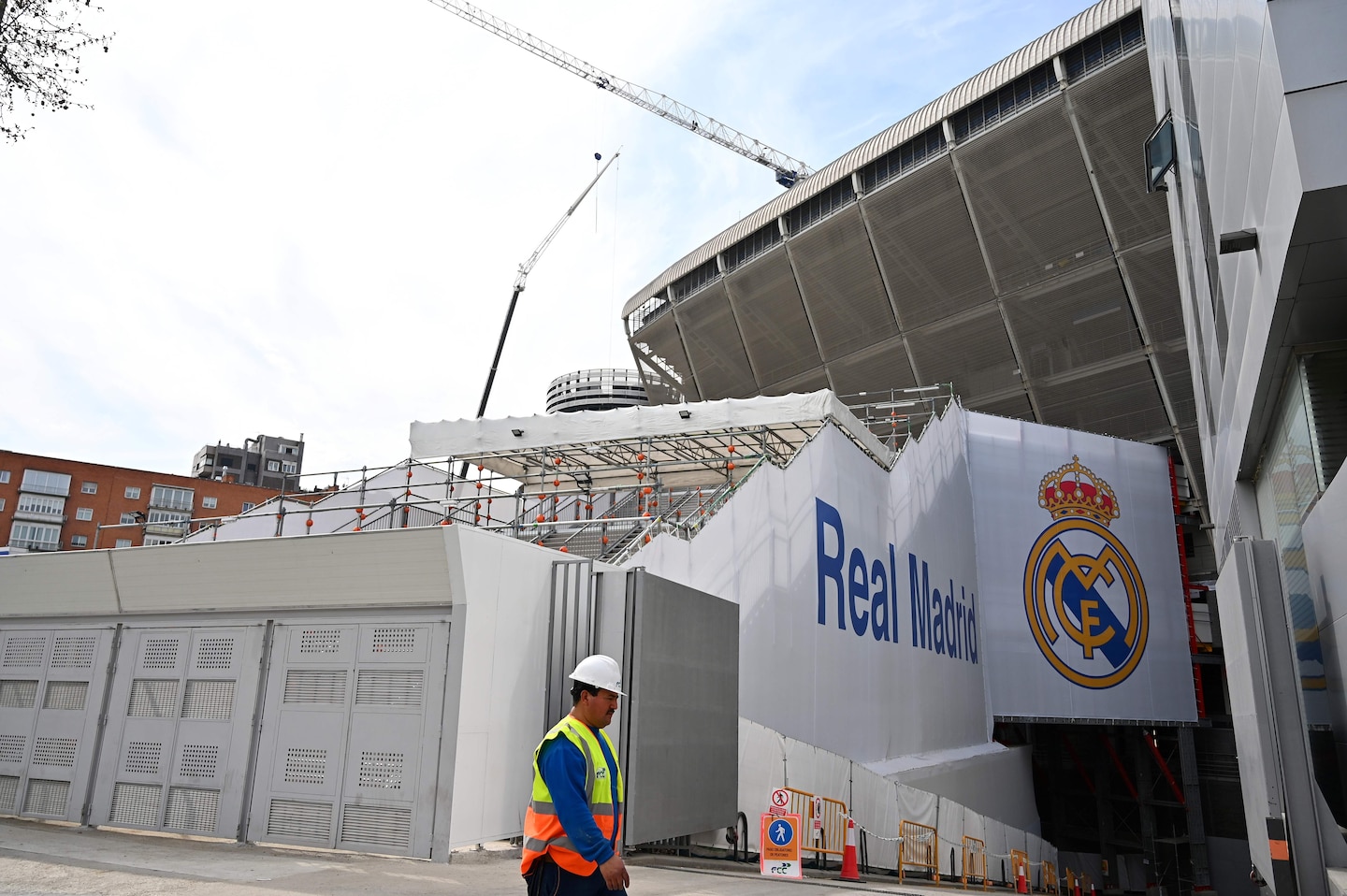Real Madrid to use stadium as medical supply center in battle against coronavirus

Real Madrid’s stadium boasts the city’s third most-visited museum — after the Prado and the Reina Sofia museums — with one out of every five tourists in Madrid visiting the space dedicated to the team’s record 13 European Cups, numerous Spanish league championships and other trophies.
Madrid has been Spain’s hardest-hit city by the coronavirus pandemic, with 17,166 confirmed cases and 1,221 people in intensive care units Thursday.
The city has transformed other landmarks to address the emergency situation. Madrid’s main ice skating rink is operating as the city morgue; the 2,090 deaths since the outbreak began have overwhelmed the city’s funeral parlors. IFEMA convention center was transformed into a field hospital, with 1,300 operational beds and an ability to expand to 5,000 beds.
Real Madrid captain Sergio Ramos announced Wednesday on Twitter he will donate 264,571 masks, 1,000 items of protective equipment and 15,000 tests to help stock the necessary supplies in Spain. The defender’s donation will be made through the United Nations Children’s Fund, for which the Spanish national team veteran is also a global ambassador.
Former Real Madrid president Lorenzo Sanz, who helped end Madrid’s 32-year drought in Europe in 1998 when it won its seventh European title, died Saturday from the coronavirus. He was 76.
All of Real Madrid’s teams went into quarantine March 12 when it was confirmed that one of the club’s basketball players tested positive for the virus. Real Madrid’s professional soccer and basketball players share facilities at the team’s training ground in Valdebebas.
The news came as Spain struggled to access medical supplies in what government officials called an “aggressive and competitive international market” and health professionals decried the lack of protective gear and fast tests.
Earlier Thursday, officials said they had returned a batch of 9,000 fast tests to a national supplier because they were unreliable. The government clarified the batch in question was not purchased from China and that it was not part of the operation announced by Health Minister Santiago Illa on Wednesday.






